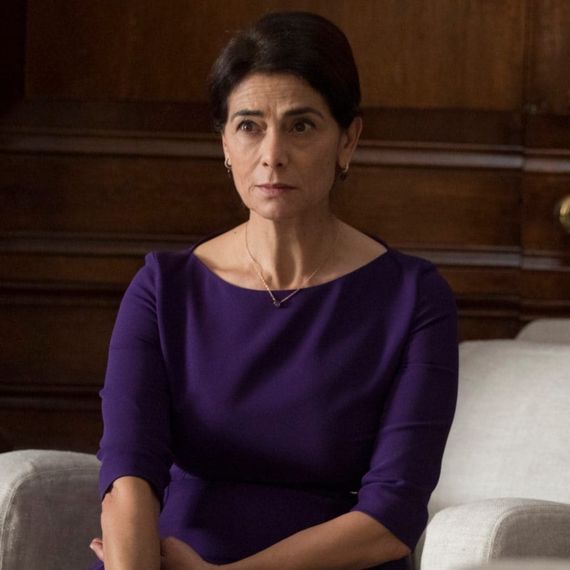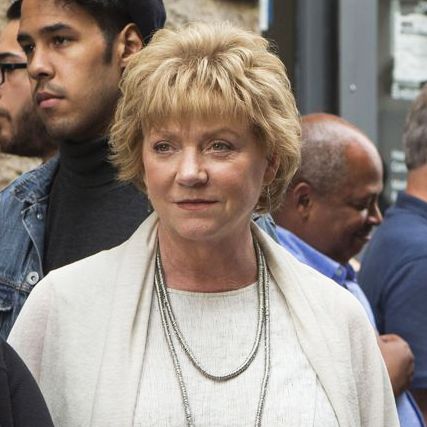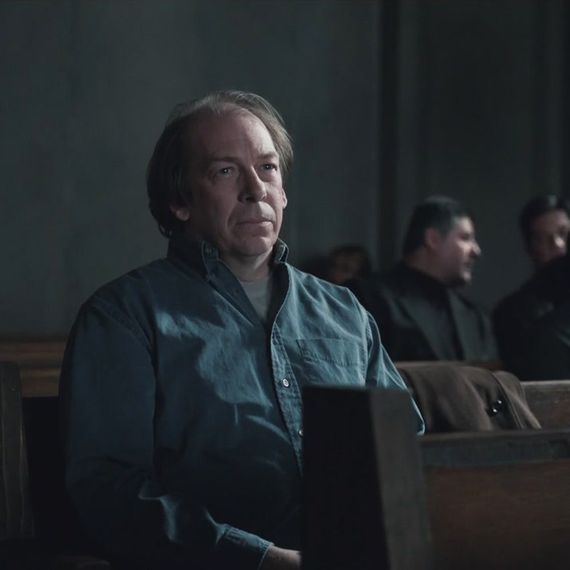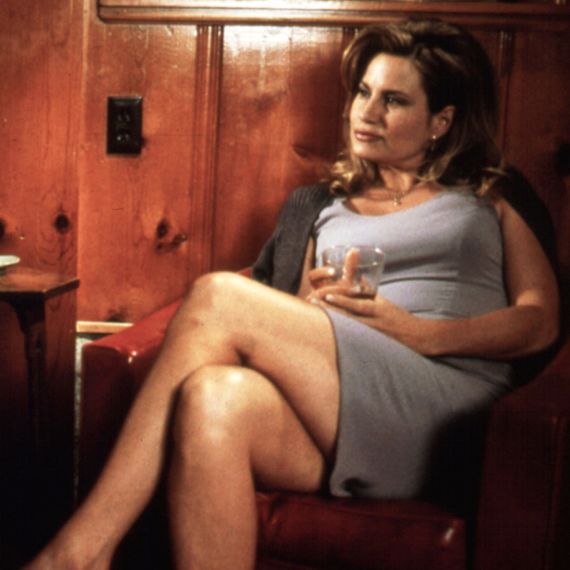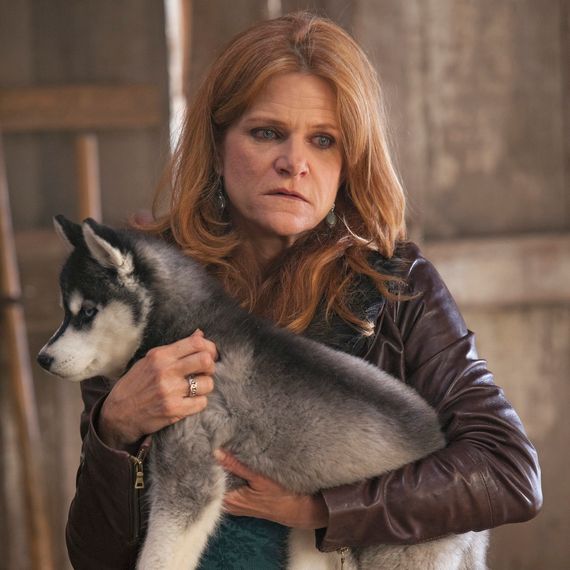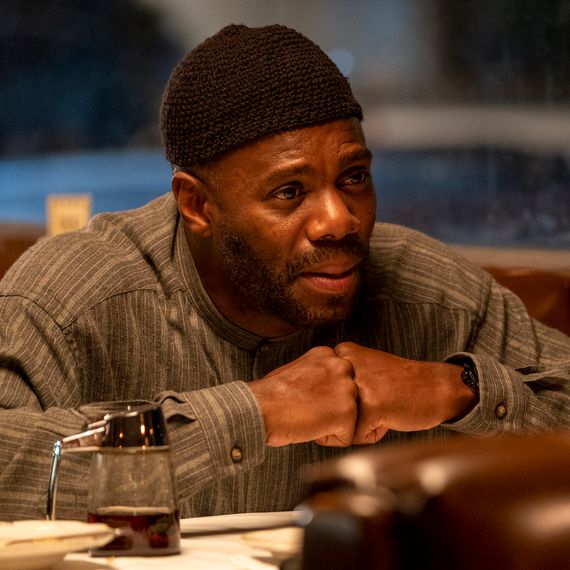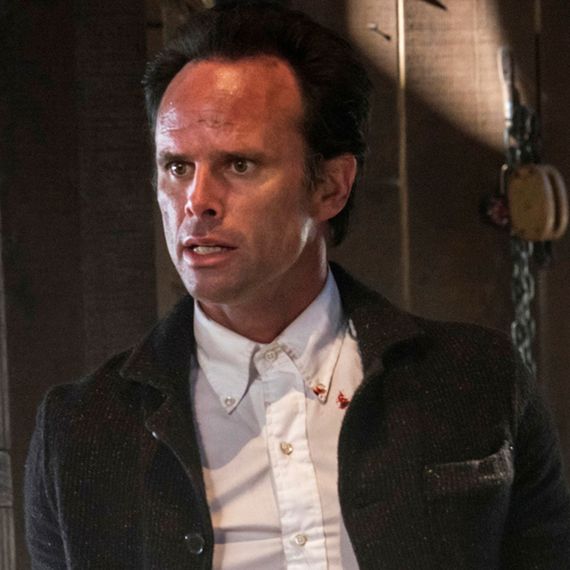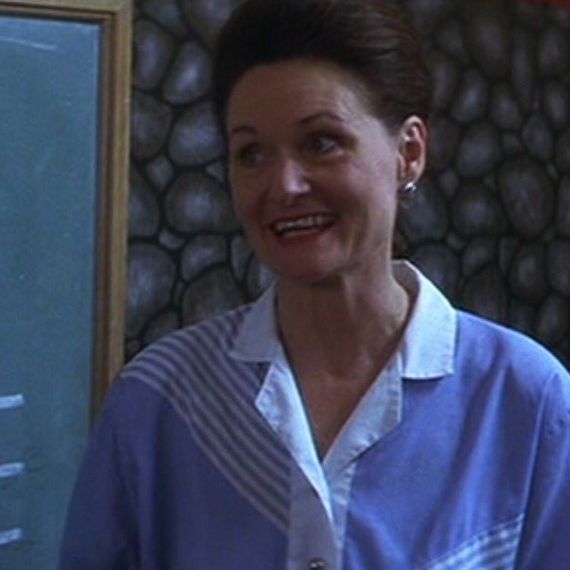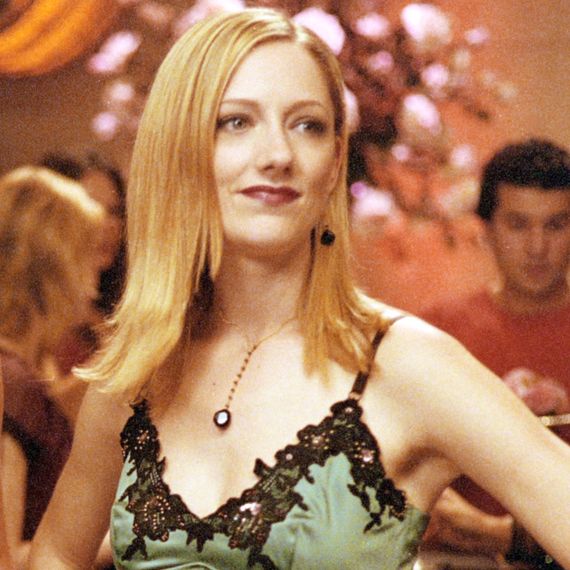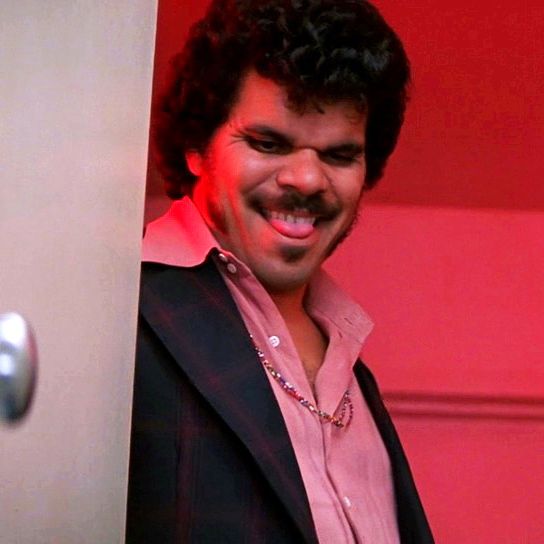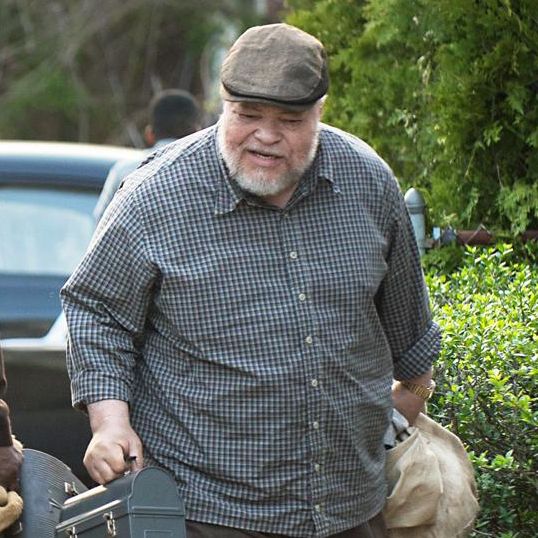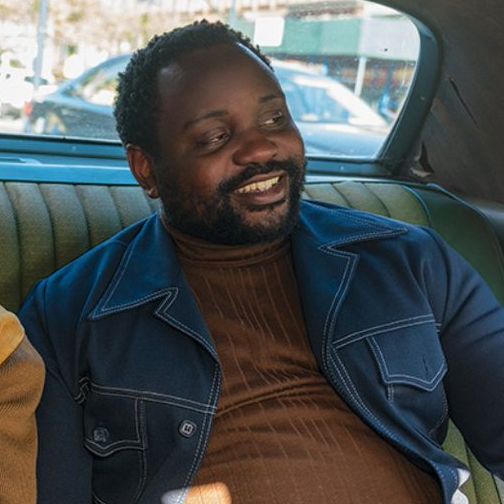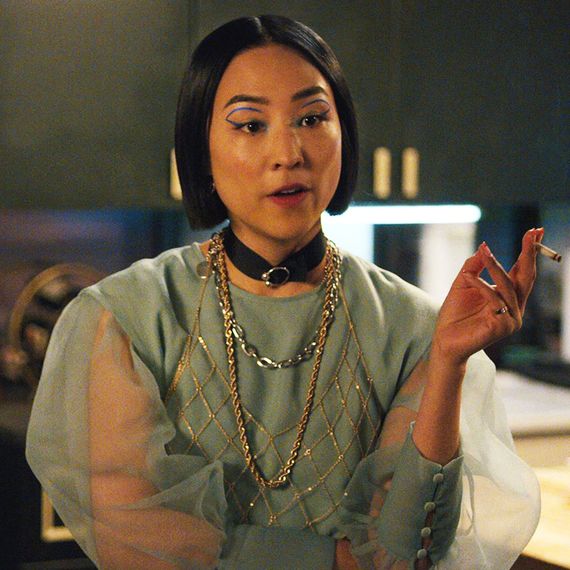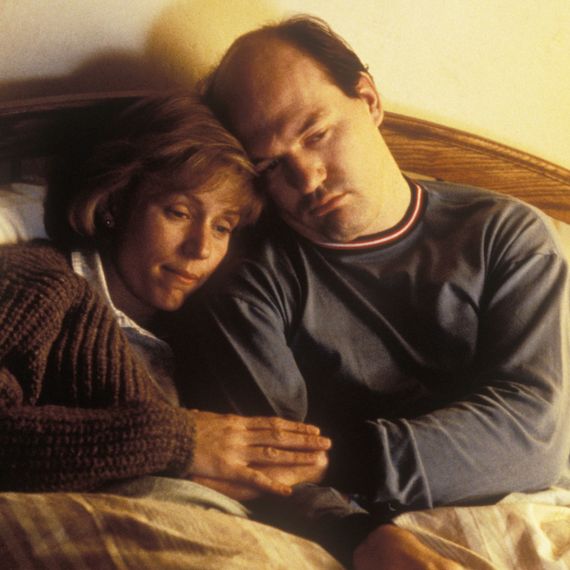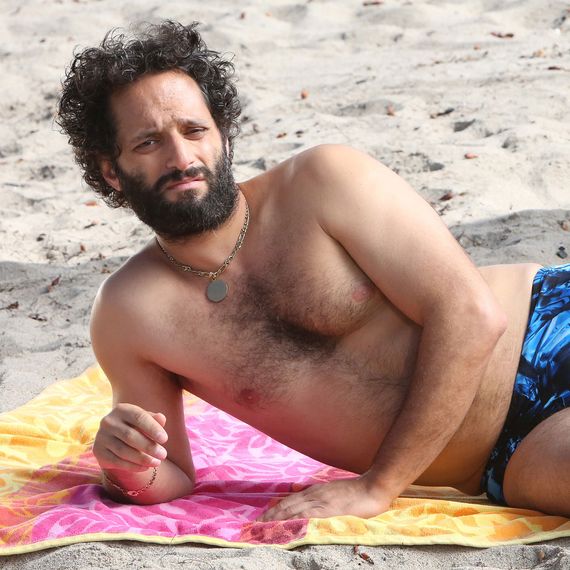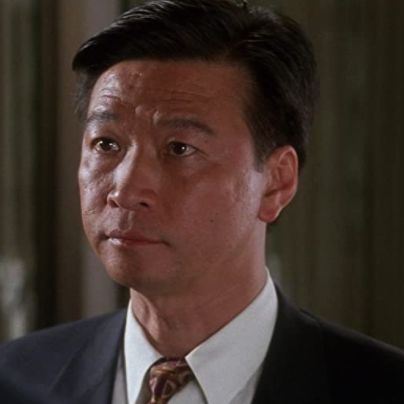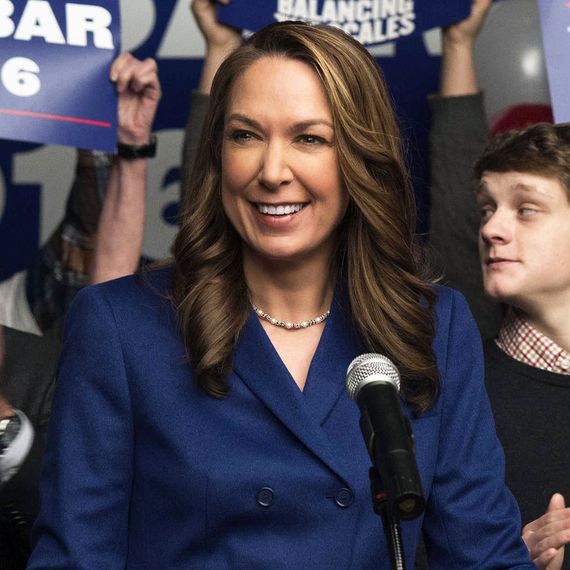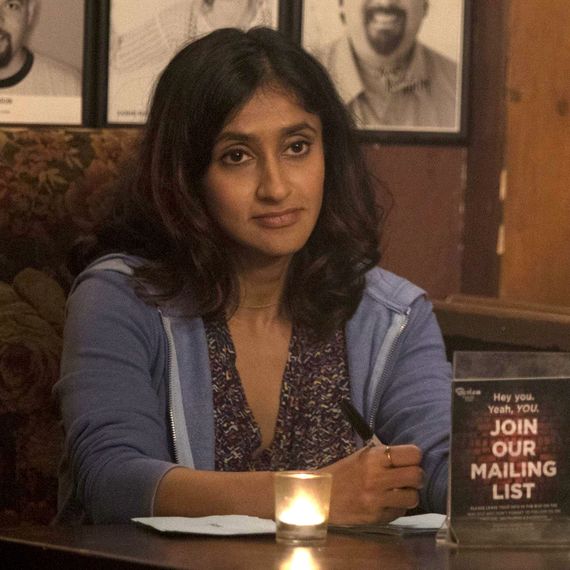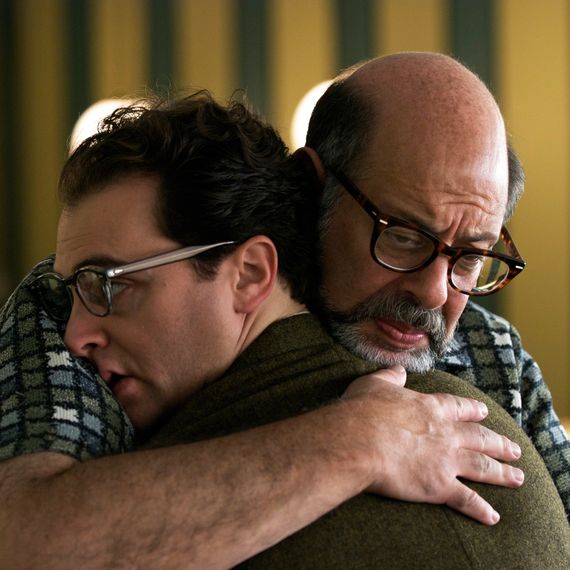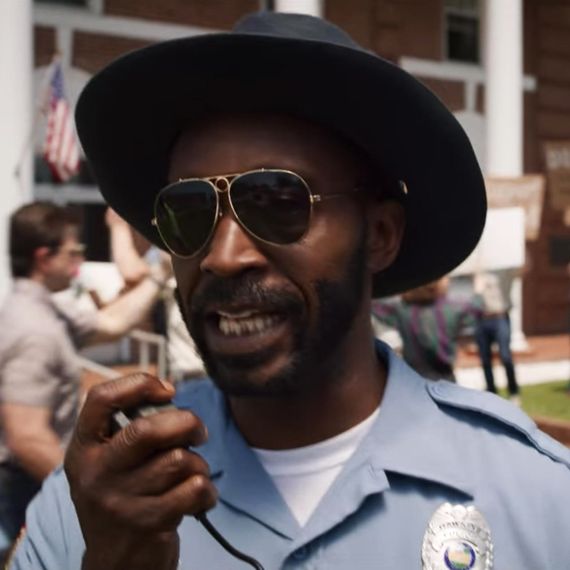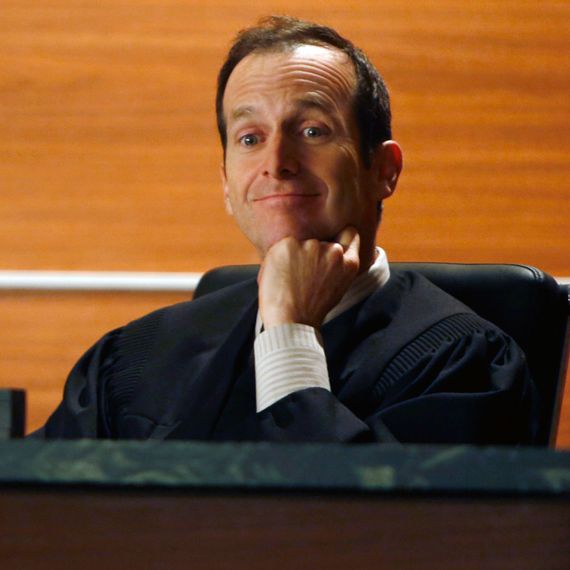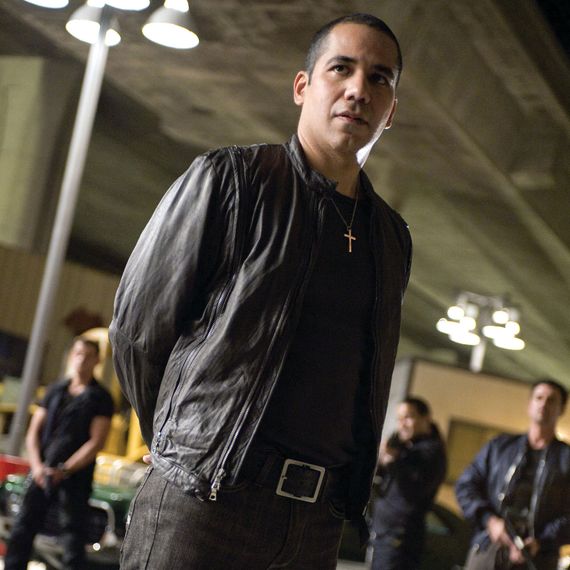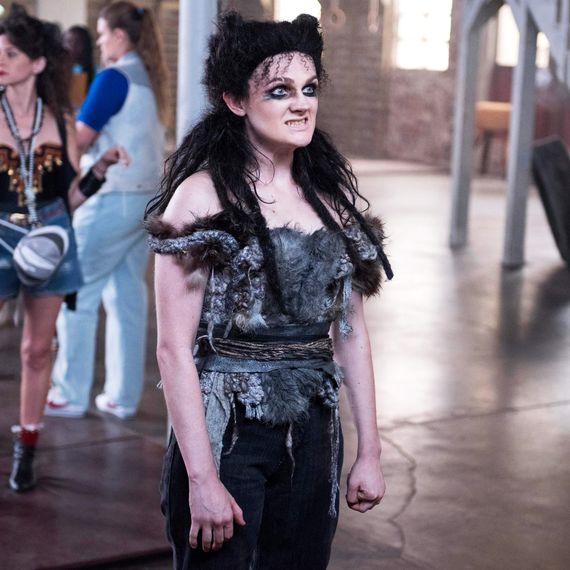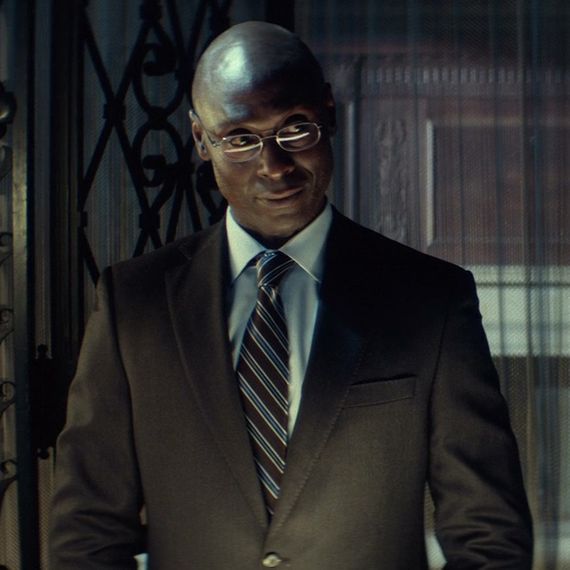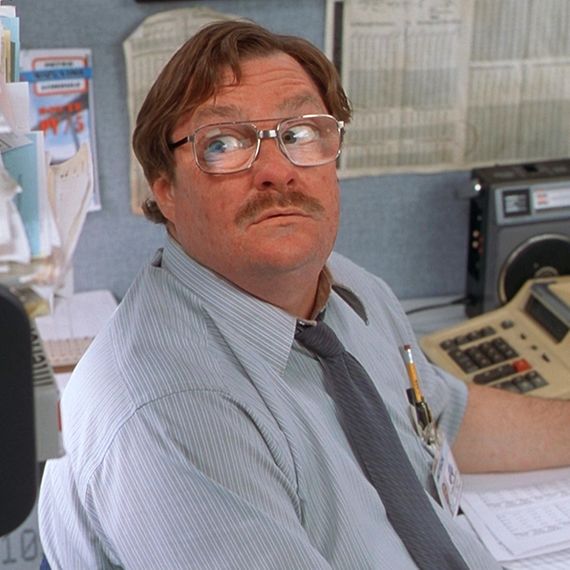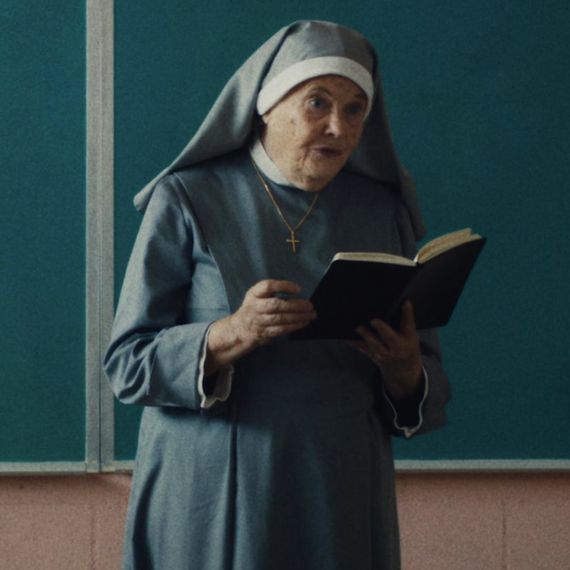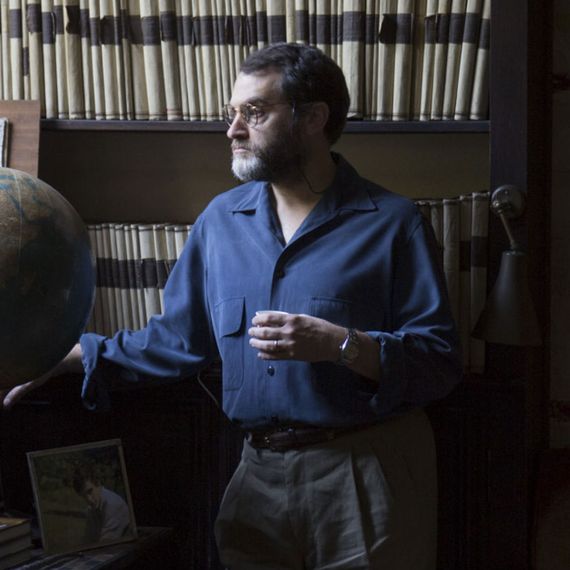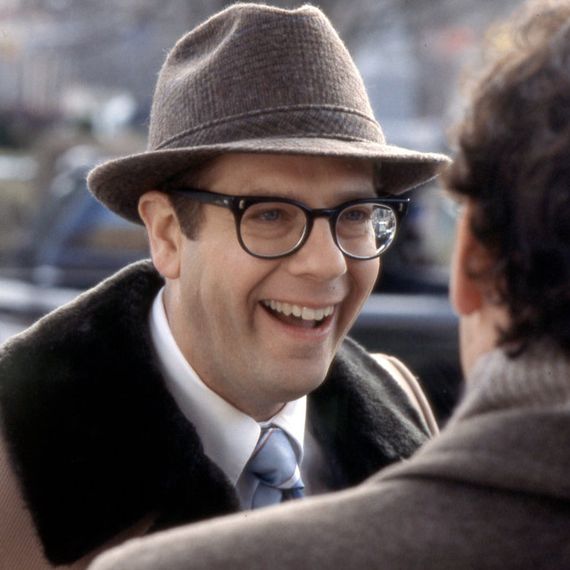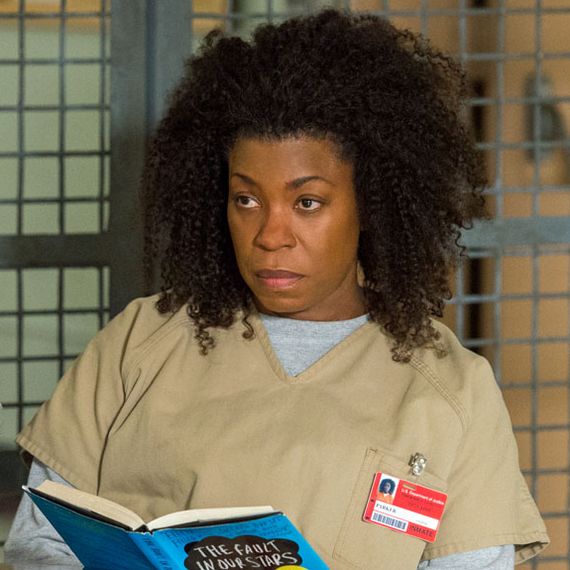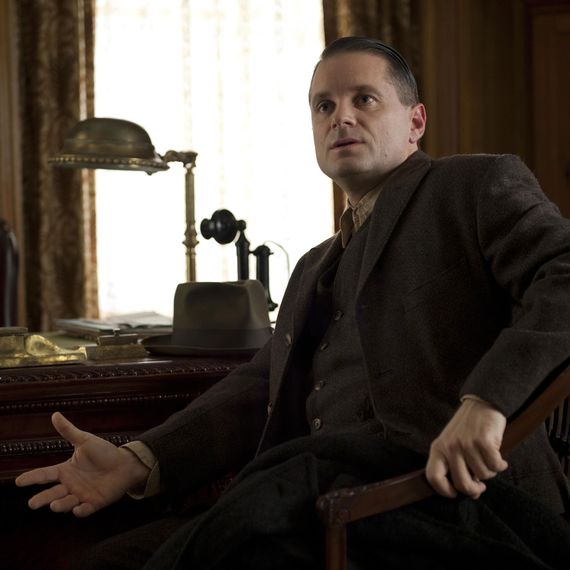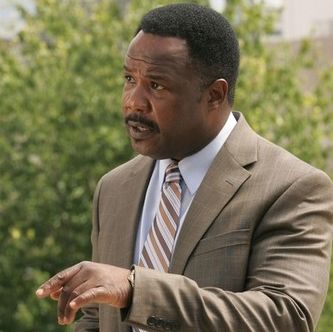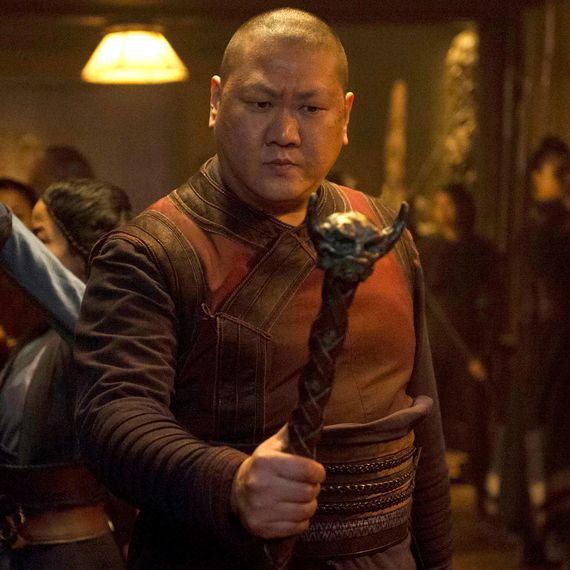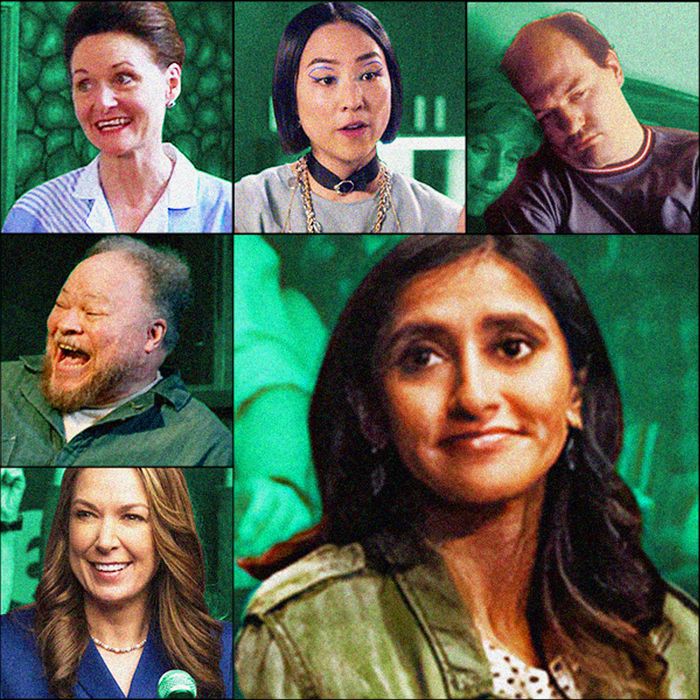
As many have noted, a small but significant loss we’ve all faced during quarantine has been the disappearance of the casual acquaintance. People like your roommate’s high-school friend, the neighbor who took the same subway line, the co-worker you always saw in the kitchen. These were not deep relationships, but even so, there was a comforting familiarity in encountering the same faces on a semi-regular basis.
Fortunately, while those people who played such treasured peripheral roles in our lives have for the moment (a year and counting) gone away, we’ve been able to turn to the people playing treasured peripheral roles in entertainment to pick up the slack. In the era of Peak TV and the subsequent streaming boom, character actors are working more than ever before — and since many of us have little else to do but stare at our screens, it’s precisely these performers who have filled the gap left by our secondary bonds. When your social circle has shrunk down to your immediate household, the glimmer of recognition that comes from spotting a familiar face in a movie provides more dopamine than it probably should.
That’s why this year more so than ever before, as awards season trains its spotlight once again on actors who are accustomed to such gold-tinted attention, we felt it was vital to properly recognize those ubiquitous yet under-acknowledged performers whose regular appearances on our devices were one of the few joys we were afforded during lockdown. We’ll be showing our appreciation with a week’s worth of articles devoted to hard-working bit players, beginning here with the results of an industrywide survey we conducted to answer one simple question: who are the most memorable character actors working today? To find out, we polled nearly 60 directors, showrunners, casting directors, and critics — and when we tallied the results, 32 names had emerged from a field of more than 300 suggestions.
Before we get into the list, some housekeeping: What makes an actor a character actor? Try to pin it down, and you’ll go mad wading through counterexamples. The most obvious definition is that a character actor is not a lead. (Frequently they’re not even the fourth-, fifth-, or sixth-billed in the credits, either.) Except that sometimes, aging stars will do their best work in character roles, while other character actors turn out to be stars-in-waiting. A character actor is someone who is known for small parts, but with the abundance of cable and streaming projects, many of them now occasionally work as co-leads, albeit in little-discussed series. Then there are the philosophical questions: Is a character actor someone who disappears into a role, like Bill Camp, or someone who has a distinctive presence, like Colman Domingo? Yes and yes.
There’s a long-held notion that a character actor is someone who’s simply not attractive enough to be a lead, an idea so ingrained that it even made its way into the Wikipedia definition. A superficial scan of this list will quickly disabuse readers of such a belief, though there admittedly often is an element of an actor’s face that marks the person as a character actor, a seasoning you won’t find on the CW. As Camp told me when I interviewed him and his wife, fellow character actor Elizabeth Marvel: “I played a lot more leads when I was younger. But I look like Chet Baker now.” (Camp later clarified that he loves Chet Baker and was not trying to insult him.) The best character actors take ordinariness and make it highly specific. Think of the way Beth Grant has honed the suburban busybody to its sharpest points, or how, with just one sigh, Michael Stuhlbarg serves up the foibles of the intelligentsia on a silver platter.
Character actors often have a sense of timelessness to them as well. While an A-lister’s stock may rise and fall with the fashions of the day, a character actor can stay booked and busy for decades. For a performer, the title brings remarkable job security, especially for female character actors, who have a different relationship with the perils of Hollywood sexism than their more famous peers. “Often women my age are reaching a point where it’s time to find another direction to go in,” Marvel told me, “unless you’re a character actor. And then it’s awesome, because there’s so much fascinating work.”
While any sort of conclusive definition of a character actor is likely impossible to achieve, to produce this list we nevertheless needed to set some firm boundaries. We came up with three rules governing inclusion, which were shared with our survey respondents:
➼ The Jenkins Rule: If a performer has been nominated for an Oscar, that performer is ineligible.
➼ The Dowd-Martindale Rule: If a performer has won a lead or supporting-actor Emmy, that performer is ineligible. (Winners of an Emmy Award for Outstanding Guest Actor are permitted.)
➼ The Hahn Rule: If a performer currently works primarily as a lead, that performer is ineligible.
Also, the performer had to be alive, but we didn’t know who to name that one after. Too many options!
Got all that? Let’s get to the names*.
Hiam Abbass
First role: La Nuit Miraculeuse (1989)
You Know Her From: Succession, Ramy, The Visitor
Be Sure to Check Out: Lemon Tree, The Syrian Bride, Satin Rouge
The complexity of defining a “character actor” is on full display when considering the Palestinian actress and director Abbass, who is practically a household name in the Middle East and a revered figure on the international-film-festival circuit (she’s even served on a Cannes jury). And certainly, a performer who can simultaneously portray Succession’s enigmatic and fascinating Marcia Roy and Ramy’s filterless matriarch Maysa is nothing if not versatile.
Although Abbass frequently appears in smaller parts in high-profile films in the West — such as Munich, in which she played the headstrong wife of a Palestinian diplomat targeted for assassination (and on which she also served as a consultant), or Blade Runner 2049, as the leader of a replicant freedom movement — she has been a devastating presence in films by international auteurs such as Palestine’s Hany Abu Assad and Israel’s Eran Riklis. In the former’s Oscar-nominated Paradise Now (the first Best Foreign Film Oscar nominee from Palestine — controversial at the time, in 2006, for all the reasons that you’d expect), she lent a complicated sense of humanity to the mother of a suicide bomber.
Arguably her greatest roles have come from Riklis, however: In The Syrian Bride (2005), Abbass conveyed outrage both righteous and comic as the headstrong, feminist sister of a young woman whose imminent, cross-border wedding to a Syrian pop star is buried in red tape. In the same director’s Lemon Tree (2008), she blended defiance, grief, and bewilderment as a Palestinian widow trying to preserve her family’s lemon grove from destruction by the Israeli Defense minister, who has moved in next door. The latter is truly one of the great performances of its decade and rightfully won her a number of awards all around the world.
Becky Ann Baker
First Screen Role: The Protector (1985)
You Know Her From: Girls, Freaks and Geeks
Be Sure to Check Out: A Simple Plan, Social Distance
Becky Ann Baker has played cops and judges, attorneys and teachers, authors and nurses. But she’s probably best known for portraying moms.
For another actor, this might be a bad thing. The “mom part” is often an underwritten, bland, or naggy role that an older woman is pigeonholed into playing. But Baker, who has been amassing screen credits for more than 35 years, started to register higher on the public radar because of the dimension and emotional depth she brought to maternal characters.
As Jean Weir on the sadly short-lived Freaks and Geeks, she is the classic nice mom who is super-supportive of her kids and always striving to do the things that good mothers are supposed to do. But with Baker playing Jean, the faintest wisps of melancholy trail her through the rooms of her suburban Michigan home. Baker makes it clear in almost every episode of that wonderful series that Jean is a nester who dreads the idea of her own being empty.
As Loreen Horvath, mother of Lena Dunham’s Hannah on Girls, Baker is a much different kind of mom. She’s blunt and sometimes self-involved (like mother, like daughter). In one of the final episodes, “Gummies,” Baker is onscreen for just a handful of minutes. But as a woman now split from her husband, forced to live alone, and prone to scarfing down cannabis gummy worms to numb the pain, she is bitter and sad, funny and a big ol’ relatable mess. Her performance is one of the things you remember about that episode, years later.
The common denominator in all of Baker’s performances is the sturdiness with which her characters carry themselves, even the softer, sometimes insecure ones. From the grief-stricken, enraged wife in the 1998 movie A Simple Plan to the wife in quarantine who wants more out of life in the recent pandemic-set Social Distance — in which she stars opposite real-life husband Dylan Baker — Baker breathes life again and again into women determined to persist, something she has done for decades.
Bill Camp
First role: Freddy’s Nightmares (1989)
You Know Him From: The Night Of, The Queen’s Gambit, The Outsider
Be Sure to Check Out: News of the World, Dark Waters, Wildlife
Bill Camp looks equally at home no matter where you put him. Whatever the genre, time period, or character type, he brings with him a believable, undeniable weight. When a Bill Camp character enters a scene, it feels like that person existed before the cameras caught him. His power is in how much he makes his characters, and the projects around them, more tactile and believable. He told Variety in 2018, “I have the greatest job in the world, because I show up to do my job, but I’m really just sort of living my life as I go. I think it’s crucial for actors to have full lives outside of acting.” (Camp, you may not be surprised to learn, has also worked as a mechanic and a cook.)
Camp’s full life anchors the drama of The Queen’s Gambit, in which he takes a character that could have felt merely functional and grounds him with a subtle kindness that comes with a lifetime of experience. He doesn’t get much dialogue, but it’s in the way his face perks up ever so slightly when he senses he’s sitting with a legitimate child prodigy or the worry that crosses it when he realizes her road ahead.
The Queen’s Gambit is only the latest. Wherever he goes, he imbues his roles with wants, needs, and addictions that are reflected not through dialogue but body language. Look at him in Molly’s Game, and you can sense this man’s coiled addiction in every muscle in his body. He brings a world-weariness to his tragic character in Dark Waters, finding a physical gravity that amplifies the human cost of corporate malfeasance. He turns what could have been merely a lothario “other guy” role in Wildlife into something heartfelt by being genuine in every moment. Just watch the way he listens — you can see him hear the people around him. It’s the kind of skill that elevates what could just be another member of the cast into the kind of character actor audiences can’t help but notice. (Little surprise, then, that he was our top vote-getter, appearing on 20 percent of surveys.)
Jennifer Coolidge
First role: Seinfeld (1993)
You Know Her From: American Pie, Best in Show, Legally Blonde, the “Hi” video
Be Sure to Check Out: Gentleman Broncos, Bad Lieutenant: Port of Call New Orleans, Promising Young Woman
Jennifer Coolidge might be the consummate character actor, even if in ways she’s transcended the title. In 1999, the term “MILF” was popularized by the teen sex comedy American Pie, a descriptor for the sexually vivacious character she played known as “Stifler’s Mom.” While that role ushered in an era of cougar fever onscreen, Coolidge is so, so much more than that. Yes, many of her most famous roles are bimbo-adjacent, from the soup-loving trophy wife Sherri Ann in Christopher Guest’s Best in Show to hapless manicurist Paulette in Legally Blonde. But the Groundlings-trained comedian infuses these oft-maligned side characters with a sense of humanity, sly intelligence, and absurdity, making each iconic in their own right. Her performances of these archetypical blondes, starting with a bit part as “Hottie Police Officer” opposite ex-boyfriend Chris Kattan in A Night at the Roxbury to the Botox-obsessed Fiona in A Cinderella Story are at once a send-up and subversion of these stereotypes.
Coolidge’s work is deceptively layered and her improvisational skills unimpeachable (as one of Guest’s regular players), but it seemed to take a long time for her comedic genius to be fully recognized by mainstream audiences, who may have wondered if she was even acting at all. No other actor does what Coolidge can do so well, because she’s so committed to the bit; it often seems she slips into character during press appearances. That persona allows Coolidge to surprise audiences when she tries something new, like the dramatic performance she gave in Werner Herzog’s Bad Lieutenant: Port of Call New Orleans in 2009.
Coolidge hasn’t stopped experimenting in her career, trying stand-up, doing voice-over work in animation, and, lately, bringing her skill to a supporting role as a sweetly mournful mother in current Best Picture nominee Promising Young Woman. Coolidge may have cornered the market on delightfully bonkers blondes, but make no mistake: She can do it all.
Dale Dickey
First role: The Incredibly True Adventure of Two Girls in Love (1995)
You Know Her From: True Blood, Unbelievable, Palm Springs
Be Sure to Check Out: Winter’s Bone, Leave No Trace, Blues for Willadean
In 2010, Dale Dickey gave what was probably the best American performance of the year with her turn as the positively demonic Merab, chain-saw-wielding matriarch and enforcer-wife for backwoods crime boss Thump Milton in Debra Granik’s Winter’s Bone. That she actually got awards attention for the role, which involved limited screen time, was a testament to her accomplishment. Even though she’d stolen her fair share of scenes on shows like My Name Is Earl (as “Patty the daytime hooker”) and Breaking Bad (as the prosthetic-lesion-covered, murderous meth-addict wife of Spooge), this was a true coming-out party for the actress; suddenly, and finally, critics knew who Dale Dickey was. Winter’s Bone was a case of a film director knowing exactly what to do with the East Tennessee–born performer, whose distinctive face has gotten her lots of working-class parts (cops, waitresses, gas-station attendants, werewolf grandmothers) over the years. “From the age of 20, I was playing people over 50,” she once told an interviewer. “My face reads mean and hard.”
It took years for Dickey to carve out a place for herself in the industry. As a struggling actor in New York, agents often didn’t know what to do with her. She got her first break in theater when she served brunch in New York to Steel Magnolias author Robert Harling, who decided her southern energy was just right for his work; she eventually got a role in the Chicago production of the play. (Dickey continues to work regularly in theater, often with southern playwright Del Shores.) Another break came when Sean Penn cast her as a cop in his psychological thriller The Pledge, a virtual cavalcade of notable character turns.
She’s a staggeringly good actress. Look at her turn as the sassy veteran cop RoseMarie in Netflix’s Unbelievable, where she makes a meal out of pretty much every single line of dialogue that she gets; she can turn the statement of a simple statistic into an existential fact. Or her appearance as the weary but compassionate owner of a trailer park who helps the protagonists get back on their feet in Leave No Trace, also directed by Granik. (The movies and shows don’t even need to be all that great: She was one of the few good things about Alejandro Amenabar’s thriller Regression.) It’s not just her tough demeanor that makes us take notice; it is her intense unpredictability. When Dale Dickey is onscreen, anything seems possible.
Colman Domingo
First role: Around the Fire (1998)
Where You Know Him From: Euphoria, Fear the Walking Dead, If Beale Street Could Talk, Ma Rainey’s Black Bottom
Be Sure to Check Out: The Big Gay Sketch Show, Passing Strange
To follow Colman Domingo’s career over the past 15 years is to witness a vocal transformation that rivals the likes of Michael Caine. Domingo came to acting late, and his big breaks didn’t occur until his late 30s. In these early roles, he was a vocal chameleon, a high-energy ham. On Logo’s Big Gay Sketch Show, he imbued Craigslist Missed Connections with literary gravitas as Maya Angelou and turned in a pitch-perfect Morgan Freeman, spouting inspiring non sequiturs. (“Most of the shadows in this life are caused by standing in your own sunshine.”) His 2009 one-man show A Boy and His Soul saw him inhabit dozens of characters: a satin-voiced radio DJ, an uncle’s belly-slapping bonhomie, an exotic dancer doing unspeakable things to a dill pickle.
But as Domingo got into his 40s, his energy slowed down, smoothed out. And he found his calling card: a voice that was earthy and rich, the sound of cigars and good whiskey. It’s the first thing you hear in Lincoln, even before Daniel Day-Lewis, as Domingo’s Union soldier narrates the Battle of Jenkins’ Ferry. There’s often a comfort to his onscreen presence. In Ma Rainey’s Black Bottom, he’s the avuncular trombone player who eases the band into each take: “A-one, a-two, a-you know what to do.” In If Beale Street Could Talk, he’s the peacemaker, a man who cuts through ambient anxiety with just a glass of liquor and a glint in his eye. He’s been making the most of quarantine, setting up a virtual “Bottomless Brunch” series on YouTube, where the principle pleasure is just relaxing into his company.
But there’s a directness to Domingo, too — his is not the voice of a bullshitter. In Euphoria, he plays Ali, the seen-it-all sponsor to Zendaya’s Rue. The show’s Christmas special was a bottle episode, the pair facing off in a conversational fencing match, full of feints and parries. Ultimately, Ali cuts through Rue’s defenses with a flurry of simple declarative statements, including the question that finally breaks her: “How do you want your mom and sister to remember you?” Compared to what Zendaya’s giving, Domingo’s part is far less showy, but he carries it off with quiet certainty. The hammer can’t shape steel without the anvil.
Walton Goggins
First Role: Murder in Mississippi (1990)
You Know Him From: Justified, The Unicorn
Be Sure to Check Out: The Shield, The Righteous Gemstones
Walton Goggins is not an actor who disappears into a character. He’s a flexible, thoughtful, meticulous performer, and his career has demonstrated how fun it is to watch him embrace characters who can be monstrous (as a bad cop in The Shield) or hilarious (as characters in Danny McBride shows) or sweet (as a single dad in The Unicorn, Goggins’s first major leading role). But any role Goggins plays carries with it some element of his distinctive physical presence. He is perpendicular slashes on the screen, a sharp, hips-forward vertical stride that’s set against his severe horizontal smile.
Goggins has said that his first role was for the 1992 Billy Crystal film Mr. Saturday Night, in which he played a Confederate soldier who was eventually edited out of the movie. His first IMDb credit, though, is for a TV movie in 1990 called Murder in Mississippi, in which he plays a racist mob member who shouts obscenities at civil-rights activists. Goggins’s career has been shaped by his performances as baddies and white Southerners, most of whom are hypocrites, racists, or con men. His role as Shane Vendrell on The Shield made it clear that he can carry an almost blinding charisma onscreen, but it’s as Boyd Crowder on Justified that Goggins has been his most indelible — he conveys viciousness and tenderness at once, and his smile is a scale that tips between messianic self-importance and rueful cynicism.
All Goggins roles are glorious, and Justified’s Boyd Crowder will follow him forever. For a glimpse of his range, though, and how potent he can be in an ensemble, there is no better Goggins platform than The Righteous Gemstones, in which he plays Baby Billy Freeman. The same things that work so well in other roles are at play again there: a character whose public persona is a shield for lurking subterranean motives, someone who draws in people almost incidentally, as a mere side effect of being alive. Gemstones adds something else, too. In that role, Goggins is intense and self-absorbed but also loose-limbed. His grip on the character is just a smidge lighter, and the result is a scene like “Misbehavin,’” in which all those stark perpendicular lines come together in a mulleted clogging performance. It’s everything he’s best at (weird, magnetic, vulpine) in one silly, perfect moment.
Beth Grant
First role: BJ and the Bear (1979)
You Know Her From: Donnie Darko, Speed
Be Sure to Check Out: To Wong Foo, Thanks for Everything! Julie Newmar
You know exactly who you’re dealing with as soon as a Beth Grant character walks into frame. The Alabama-born actress has been playing small-town busybodies, disapproving religious types, and nervous bystanders with a near-campy twist since she first broke out, decades ago, in 1979’s BJ and the Bear. It’s hard to say whether being as inextricably linked to a line of movie dialogue as Grant is to Donnie Darko’s “Sometimes I doubt your commitment to Sparkle Motion” is a blessing or a curse. On the one hand, she’s achieved immortality; on the other, she’s probably accosted with the words of Kitty Farmer every time she hits the supermarket. Such is the price of being as good as Grant is at making the smallest roles utterly indelible.
It’s not exactly heartland decency Grant projects; she tends to embody the fearful, paranoid, and judgmental corners of our most basic human nature. She’s suspicious of sharp-dressed Tom Cruise when he shows up on her doorstep with Dustin Hoffman in Rain Man, hoping to commandeer her TV to watch The People’s Court. She’s weak and panicked as Helen in Speed, stuck on a death-bus and not willing to wait for Keanu Reeves to figure it out — so she tries to make a break for it and pays the ultimate price.
Her characters aren’t all named “Mother at Farm House,” as was the case in Rain Man, but a lot of them could be for all the dust on their hems. When To Wong Foo, Thanks for Everything! Julie Newmar needed a coterie of small-town women to get made over by drag queens, of course they called Beth Grant’s number. When the Coen brothers needed a pinched and judgy face to play Carla Jean’s mother in No Country for Old Men, Grant was the only choice.
She has so effectively carved out her niche in the character-actor universe that she’s achieved a kind of kitsch appeal. Bryan Fuller kept her as a recurring totem, bringing her Marianne Marie Beetle character from Wonderfalls to Pushing Daisies to Mockingbird Lane. Perhaps the perfect encapsulation of Grant’s ability to communicate a character instantaneously was in a 2004 episode of Six Feet Under, where she played a religious woman mistaking escaped blow-up sex dolls floating into the sky for the Rapture. Everything we know about a Beth Grant character made it perfectly logical for her to chase those blow-up angels into the path of oncoming traffic (Dorothy Sheedy, 1954–2003), a tragic yet perfect end for a woman played by the patron saint of Middle American hysteria.
Judy Greer
First role: Early Edition (1997)
You Know Her From: 13 Going on 30, Arrested Development, Ant-Man
Be Sure to Check Out: Married, Halloween, Adaptation
In the Funny or Die sketch “Judy Greer Is the Best Friend,” the actress sits at a diner with her lovestruck bestie. Greer encourages her to go to the airport and catch the love of her life before he’s gone. The friend runs out of the door and the music swells, but once she’s gone, Greer sits awkwardly in silence. What is left for her to do if not coach her friends on their love lives? The bit is funny, though also painfully real as a reflection of a career full of thinly written roles that exist only to support the protagonist. It’s a fact that Greer knows all too well, having titled her 2014 memoir I Don’t Know What You Know Me From: Confessions of a Co-Star.
What makes Greer one of our great character actors is that she’s taken this unfortunate reality in stride by consistently and exceptionally making the most of what she has. She’s staggeringly prolific, amassing close to 150 credits, and these countless opportunities have given her the chance to highlight real nuances and depth in stock characters. Films like The Wedding Planner and 13 Going on 30 solidified her as the early-aughts go-to, must-book bubbly sidekick. But she also possesses a once-in-a-lifetime comedic timing that is singularly and innately unhinged. (See every time she stole a scene in Arrested Development as a boob-flashing personal assistant.)
More recently, she has been repeatedly cast as a housewife, or a grumpy ex-wife, or a mother who doubles as an exposition dump. And yet for all the typecasting, these are not just a homogeneous string of roles but distinctive characters that are a testament to her versatility. 2018’s Halloween in particular brilliantly played with familiar archetypes by having her play an uptight mother, only to upend those expectations with a bombastic finale that gave Greer her own triumphant Laurie Strode moment. Greer’s omnipresence in pop culture gifts us the comfort of a familiar face, and even the most thankless roles are all the more vibrant in her hands.
Luis Guzmán
First role: Short Eyes (1977)
You Know Him From: Carlito’s Way, Traffic, Code Black
Be Sure to Check Out: The Count of Monte Cristo, Anger Management, Ana Maria In Novela Land
Luis Guzmán is an Everyman with the charisma of a leading man, and he has used it to play literally every man. For Steven Soderberg, he’s played a criminal on the run (Out of Sight), a working-class ex-con (The Limey), and a DEA agent (Traffic). For Paul Thomas Anderson, he’s been a nightclub owner (Boogie Nights), a game-show contestant (Magnolia), and a random factory worker (Punch-Drunk Love). He’s played a smuggler (The Adventures of Pluto Nash), a bodyguard (Carlito’s Way), and another smuggler, in 19th-century France, who becomes a bodyguard (The Count of Monte Cristo). No matter his character’s profession or when a film is set, Guzmán not only makes each feel like a real person but makes you wish you knew him.
He has a precise comic timing and a unique intensity that he can amplify or attenuate given the needs of a scene. This makes him a perfect screen partner — he knows when to let stars shine and when to steal a scene out from under them, even if they’re megawatt personalities like Jennifer Lopez (Out of Sight), Jack Nicholson (Anger Management), and Denzel Washington (The Bone Collector). He’s a perfect partner for writers, too: his chameleonic skill for making written dialogue feel unscripted enables him to seem like someone you’d meet out in the real world. (With 150 film and TV credits under his belt, he’s probably played someone you actually have.)
Stephen McKinley Henderson
First Role: A Pleasure Doing Business (1979)
You Know Him From: Fences, Lincoln, Lady Bird
Be Sure to Check Out: Devs
Those who watch August Wilson plays have grown first accustomed to, then dependent on, Stephen McKinley Henderson. In his dramas, Wilson often wrote Virgil-in-Inferno figures, men who serve as quasi-mystical guides and foils for his troubled main characters, wise and clear-eyed, but not necessarily fated for grace themselves. Henderson’s unadorned style and dry gravitas make him perfect for these roles — onstage, he plants himself like the stationary leg on a compass — so it’s no shock how he became part of the unofficial Wilson company. He’s a big man, but he doesn’t take up space; he radiates calm and the kind of Zen amusement that laughs at whatever’s most serious. Over the decades, he has played in the marquee Wilson productions, almost always as the one still point in the protagonist’s chaotic universe. In Fences with Denzel Washington, he played the unflappable Jim Bono, first in 2010 on Broadway and then on film. It may have been there that national audiences first realized that they wanted him as their companion-in-trouble too.
McKinley Henderson is a presence deserving of center stage. He is Tony nominated for Fences, and Stephen Adly Guirgis wrote him the complex role of a lifetime in Between Riverside and Crazy, in which his retired-cop character loses his claim to moral certainty. But in film, he’s largely been used at the edges, twinkling. One of his first film credits is as Bobo in an American Playhouse production of A Raisin in the Sun, a sly little performance, one of his rare chances to be wicked. Usually television has taken his weightiness and turned it into authority, casting him as a judge or a psychiatrist. (He’s been two different recurring judges on two different Law & Order franchises.) You can sense all those guardian roles in his stature and cloud of now-white hair: We’ve been trained to find something rather paternal in the way he’s peripheral. In Lady Bird, he’s the patient but exasperated Father Leviatch, and you often find him playing roles called “Pops” or “Dad.”
Finally, film has started to capitalize on his other abilities, like the way his eyes can shift, suddenly, from kindness into untrustworthiness. Alex Garland knew just how to deploy him in the sci-fi TV show Devs, for instance, where he’s a quiet-voiced scientist. Garland uses Henderson’s steadiness as if he’s a grenade — for the whole season, he just rolls quietly across the floor, never hinting that he might be capable of blowing up the plot. That “Who me? A grenade?” quality will serve him well as Thufir Hawat in the upcoming Dune. You’ll have to look at him twice to really see him. The first time you’ll see the saint; the second time, you’ll see the bomb.
Brian Tyree Henry
First role: Law & Order (2009)
You Know Him From: Atlanta, If Beale Street Could Talk, Widows
Be Sure to Check Out: Crown Heights, Family, Joker
When we talk about range, we’re talking about Brian Tyree Henry. A graduate of the Yale School of Drama, in the last five years he’s become a comedic, romantic, and dramatic force by way of his beguiling laugh and his immense physical control. As the emerging rapper Paper Boi in Donald Glover’s surreal Atlanta, Henry conjures a big heart for an initially intimidating character by undermining his imposing (and depressed) presence with twisted, aggravated facial expressions that serve as unguarded sight gags. As Jamal Manning — a menacing former drug dealer running for Chicago alderman in Steve McQueen’s Widows, Henry leans into Jamal’s brooding frame: When Jamal strides into the luxe condo of Veronica Rawlings (Viola Davis), he picks up her adorable white terrier and threatens the tiny animal with violence if his demands aren’t met. The moment brims with a frightening tension.
But his signature role might be a single, breathless scene in Barry Jenkins’s If Beale Street Could Talk. During a carefree conversation between his character Daniel, recently released from prison, and Daniel’s best friend Fonny (Stephan James), Henry dissolves a loud and jolly exterior into a quiet impenetrability when the pair discuss the horrors of jail. It’s the way Henry leverages his physique and cheerful disposition, which goes from loose to scared stiff, that asks: What does incarceration do that would render a colossal, big-hearted Black man like Daniel so small? And in so doing, it gives Beale Street its most haunting scene.
Greta Lee
First role: Law & Order: Special Victims Unit (2006)
You Know Her From: Russian Doll, High Maintenance, Girls
Be Sure to Check Out: Inside Amy Schumer, What We Do in the Shadows
Since her start with an appearance on Law & Order: SVU, Greta Lee has moved up to become a quintessential character actor in the New York City scene. Building on appearances on critically acclaimed comedies like Inside Amy Schumer, Broad City, Girls, and High Maintenance, Lee scored an unforgettable part opposite Natasha Lyonne in Netflix’s Russian Doll in 2019. She plays Maxine, the chipper good friend throwing a big birthday party for Lyonne’s character, Nadia. Unfortunately, the party leads Nadia into a strange time loop, so while Maxine begins her introduction the same way almost every time, she must then change to react to Nadia’s increasingly paranoid and frustrated behavior.
In between numerous TV-show appearances, Lee has been in a handful of movies like Sisters, Gemini, and Spider-Man: Into the Spider-Verse. Post–Russian Doll’s splashy first season, Lee has kept busy with a variety of guest appearances on shows like The Twilight Zone, What We Do in the Shadows, and The Morning Show. That these series are so wildly different in tone and scope underscores how Lee can thrive in just about any environment, from horror to comedy to drama, immersing herself into whatever the role calls for her to do. She can do what feels like dozens of takes on her famous Russian Doll line “Sweet birthday baby” and never run out of energy. Her charisma steals scenes both small and large, which is saying something when paired with an actor as captivating as Lyonne. But it’s a talent that comes from the rapport she creates with her partners in any given scene — building on each other’s presences to make every moment count.
John Carroll Lynch
First role: Grumpy Old Men (1993)
You know him from: Fargo (the movie), The Americans, American Horror Story
Be sure to check out: Zodiac, The Founder, The Trial of the Chicago 7
The binary that distinguishes John Carroll Lynch is probably best expressed in two of his greatest performances.
In Fargo, he plays Norm Gunderson, the supportive and genial husband of Marge Gunderson (Frances McDormand), chief of police. He’s set up as a foil to the film’s more sordid men, a model of the very opposite of toxic masculinity, and Lynch embodies that ethos with aplomb. He wraps his arm lovingly around Marge as she takes dead-of-night calls, smiles with a pleasure in life that recalls a benevolent moon, and moves with the steady purpose of a man who is simply where he knows he ought to be.
But that same visage and pace, with a few small tweaks, becomes one of film’s most nightmare-haunting villains in Zodiac. Lynch plays Arthur Leigh Allen, a prime Zodiac Killer suspect. Lynch’s version of Allen appears both totally innocent, a man with explanations for everything, and intensely menacing. You get the sense that there’s something twitching under his skin, which is pulled tight to contain him. It’s unnerving for those who suspect him, but it’s equally unnerving for the audience, whose perception of Allen’s guilt or innocence changes by the millisecond. Lynch has said that Fincher asked him to play the character as if he were innocent, but it’s no wonder that he’d later play a bevy of killers and creeps on American Horror Story, including Twisty the Clown and serial murderer John Wayne Gacy.
That Lynch can morph from comforting to nerve-wracking by tweaking the energy emanating from his limbs proves how talented of an actor he is, and it’s why we love him: When he shows up onscreen, it’s never quite clear what we’ll get or what’s boiling beneath the surface. Lynch looks, at the end of the day, like any guy you might pass on the street, a big but ordinary fellow who perches on a barstool or is a partner at a law firm. But his long career in film, TV, and the theater is a testament to his ability to harness an ordinary physicality into something extraordinary, pulling together these poles — the menacing and the comforting, the goofy and the deadly serious. That’s why his appearance sparks a frisson of excitement. Something very interesting is about to happen when Lynch enters.
Jason Mantzoukas
First Screen Role: Upright Citizens Brigade (2000)
You Know Him From: The League, Parks and Recreation, How Did This Get Made? (podcast)
Be Sure to Check Out: Transparent, The Long, Dumb Road
Jason Mantzoukas cannot be escaped. Turn on an episode of The Good Place, and there he is as Derek, the robot boyfriend who does not understand how martini glasses work. Settle in to watch John Wick 3: Parabellum, and there he is again in the unsettling role of Tick Tock Man.
He does voices in the stuff your kids like to watch, like DuckTales and Doolittle. He does voices in the stuff you like to watch after your kids have gone to bed, like Big Mouth. He’s a blob of mucus in a Mucinex commercial, an extremely stressed detective on Brooklyn Nine-Nine, a slightly skeezy weed doctor on Transparent, and a goddamned bumblebee in Dickinson.
Mantzoukas is that guy that you’re always delighted to see when he pops up somewhere, which works out well since he is always popping up somewhere. This is ironic considering that he first registered on many TV viewers’ radars as Rafi, the psychopathic inappropriate-comment generator on The League, who, in the real world, you would prefer never to see anywhere. Rafi established what has become the Mantzoukas Wheelhouse: portraying weirdos of security-alarm-tripping proportions, a propensity that suits his large wild eyes and that raspy voice, which can sound broish, stonerish, or genuinely philosophical depending on how it’s calibrated. But Mantzoukas has dramatic range, too. Watch him in The Long, Dumb Road, a 2018 indie movie in which he gets the rare chance to play a lead in the form of Richard, a strange, funny, possibly disturbed dude who hitches a ride out West with an art-school student (Tony Revolori). You’ll laugh, you’ll feel pity, you’ll feel uncomfortable, and you’ll realize that Jason Mantzoukas isn’t just everywhere — he’s also capable of anything.
Tzi Ma
First role: Cocaine Cowboys (1979)
You Know Him From: Rush Hour, The Farewell, Mulan
Be Sure to Check Out: Tigertail, Dante’s Peak, Rapid Fire
In the last few years, Tzi Ma has started popping up in some of Hollywood’s most high-profile films: playing Awkwafina’s father in Lulu Wang’s The Farewell, Mulan’s father in Niki Caro’s live-action take on the beloved Disney film, and the older Pin-Jui in Alan Yang’s semi-autobiographical film Tigertail. But the ubiquitous actor has, as his fans know, delivered striking and indelible work for decades. Born in Hong Kong and raised on Staten Island, Ma is a quintessential New York actor with roots on the stage that inform his work in film and television. Ma signed up for drama in high school and, having been inspired by seeing Mako’s towering lead performance in Pacific Overtures, pursued the profession full time. Like Mako, Ma’s career would not be defined by one kind of role or one medium.
Through his early work in experimental theater coupled with his study of martial arts, Ma honed his physical abilities. His command over his body is always apparent, changing his gait and posture for each performance, whether he’s playing a diplomat (Rush Hour), a volcanologist (Dante’s Peak), a general (Arrival), or a fire chief (Skyscraper). This physicality, coupled with the sheer variety of roles he’s played, brings a Shakespearean quality to his screen presence. Ma understands that, as in Shakespeare, each role in a story is important and, no matter the size, deserves care and attention in creating an interior world for the character to inhabit. A master of dialects and languages, Ma has played ethnicities including Chinese, Filipino, Vietnamese, Laotian, Taiwanese, and Japanese. Even after racking up more than 100 credits — including appearances in more than 75 different television shows — it’s as if you’re seeing him for the first time every time he’s onscreen. As if he is that person in real life, caught by a camera vérité, grounding and sharpening every project graced by his presence.
Elizabeth Marvel
First role: Homicide: Life on the Street (1998)
You know her from: House of Cards, Homeland, Law & Order: SVU
Be sure to check out: News of the World, True Grit, American Masters: Louisa May Alcott
Elizabeth Marvel projects the kind of competence and authority that makes audiences feel like no matter how bad things have gotten, at least someone is in charge. The appearance that she’s got everything under control is all the more remarkable given that the characters she’s played who are closest to power — like presidential candidate Heather Dunbar on House of Cards and President Elizabeth Keane on Homeland — often find themselves foiled in the end. Still, you wouldn’t want to get in her way.
No doubt some of that command comes from her extensive background on the stage, where she worked for years before picking up her first TV role and to which she occasionally still returns. (She played Goneril in the gender-bent King Lear starring Glenda Jackson in 2019.) The way she takes over a room can be intimidating, but she’s not coldly present; she’s a ball of flames and a little unpredictable. The set of her jaw is as expressive as her eyes, which can slice right through an errant interlocutor.
Those qualities aren’t lessened when her character isn’t in a power suit or holding a detective’s notepad. She’s played everything from the grown-up version of Mattie in the Coens’ True Grit to Louisa May Alcott in an American Masters documentary about the Little Women author’s life. In period performances, she always gives off the feeling of a woman who knows her worth, against whatever the world around her says a woman should be. And a recent performance ties together her strengths: In the Western News of the World, Marvel plays Ella Gannett, an innkeeper in Dallas who has a casual but long-standing relationship and genuine friendship with Captain Kidd (Tom Hanks). She also speaks some Kiowa, the native language spoken by the child that Kidd is protecting, and her tenderness with the child matches her affectionate but stern admonitions to Kidd, who is running away from his past. It’s a quintessential Marvel performance, memorable as a linchpin for the story, and embodying what makes her so immensely watchable.
Aparna Nancherla
First role: Chloe + Zoë (2012)
You Know Her From: BoJack Horseman, Crashing, Mythic Quest: Raven’s Banquet
Be Sure to Check Out: A Simple Favor, Ginger Snaps
As she ascended from comedy-circle staple to rising screen star, comedian Aparna Nancherla pulled off the remarkable feat of jumping to movies and TV shows without losing her voice, wry wit, and deadpan delivery. While cutting her teeth as a writer for shows like Totally Biased With W. Kamau Bell and Late Night With Seth Meyers in early to mid-2010s, Nancherla’s profile grew as she landed front-of-camera appearances on Inside Amy Schumer, The Jim Gaffigan Show, and a few years later, Master of None. In her stand-up, she’s often vulnerable and confessional, taking on personal topics like mental health, and many of her best acting performances have built on those introspective stand-up sensibilities.
She’s branched out into voice acting: leading a show like Ginger Snaps, where she played a character desperate for a mean girl’s approval, and making guest appearances on Steven Universe, Mira, Royal Detective, and adult animation like Bob’s Burgers and You’re Not a Monster. Her most famous animated role has been on BoJack Horseman, where she voiced the character of Hollyhock, BoJack’s presumed daughter who turned out to be his half-sister. Nancherla’s performance on the show balances Hollyhock’s insecurities with her clear-eyed view of BoJack, and she’s able to convey vulnerability and condemnation in the same breath.
But it’s in the live action realm where her gifts are most resonant. Nancherla skewered soulless company culture in Comedy Central’s Corporate and joined Netflix’s comedy Space Force to dunk on, well, the United States Space Force. In Mythic Quest: Raven’s Banquet, Nancherla plays a dissatisfied worker at a chaotic video game studio, making her hatred of her bosses a running punchline. She delivers cutting remarks with a no-nonsense weariness. Her characters in these shows are simply over it, and her disdain for her enemies or roadblocks is a way to laugh through circumstances beyond one’s control. Nancherla’s brand of humor is a type of millennial malaise that is often felt but rarely communicated, which makes her a perfect stand-in to dismiss the authority figures who have dismissed us.
Fred Melamed
First role: One Life to Live (1981)
You know him from: A Serious Man, WandaVision
Be sure to check out: In a World, Lady Dynamite
The quintessential Fred Melamed role comes in A Serious Man. Melamed plays Sy Ableman, the smarmy nemesis to Michael Stuhlbarg’s Larry Gopnik. Sy is not exactly everything Larry wants to be, but he has everything Larry wants, most importantly the love of Larry’s wife. “I am a serious man,” Sy tells Larry; later, he is eulogized with those same words. But he’s not a serious man; he’s a joke, at least to us, the kind of character who very seriously pontificates to his rival about letting his wine breathe. That doesn’t make him any less a villain, but there’s a whiff of buffoonery around him that Melamed nails with unctuous, hammy assurance.
Melamed has had a sprawling career, working extensively with directors like Woody Allen and the Coen brothers while popping up everywhere else, from TV soaps and procedurals to indie flicks, often playing Jewish characters. He has one of those faces you just remember, if not quite from where: bald and full-lipped, with eyes that always look just a little amused and a beard that’s gone handsomely gray over the years. He is your high-school science teacher, your father’s best friend, the owner of the bookstore downtown who always knows what you’re looking for. That makes it even funnier when he’s playing a hapless or pompous character; we all know it’s a little bit of a clown act, and the juxtaposition is what makes it work.
And he has that voice. You might know Melamed’s baritone better than his face; he’s worked as an announcer on shows like NFL Today and voiced characters in animated shows, like Wonder Pets! and Adventure Time, and video games, including several Grand Theft Auto installments and Fallout 76. He’s so identified with voice-overs that in Lake Bell’s brilliant comedy In a World he plays reigning Hollywood voice-over king Sam Soto, father to another (female) aspiring voice-over artist. In several episodes of the short-lived sitcom The Crazy Ones, he played a version of himself as a voice-over artist conflicted about his career.
But what might be best about Melamed is the sense that he’s always up for an adventure. In the past decade, he’s played everything from Uncle Vanya onstage — a challenge for any actor — to luckless but well-meaning talent manager Bruce Ben-Bacharach in Maria Bamford’s offbeat comedy Lady Dynamite. He’s never a caricature, but he’s one of those actors who brings the other roles you’ve seen him in to every fresh character; there’s decades of slightly smirking, good-natured amusement in every performance.
Rob Morgan
First Role: Yes, Madame (2004)
You Know Him From: Stranger Things, This Is Us, Daredevil
Be Sure to Check Out: The Last Black Man in San Francisco, Bull, Just Mercy
Rob Morgan holds the distinction of being the only actor to appear in all six of Netflix’s Marvel TV shows, and in true character-actor fashion, Morgan’s Turk Barrett is not a superhero. Rather, he’s a small-time crook who makes scattered appearances — as comic relief.
Morgan is great in the part, though comedy is hardly his calling card. Before he entered the Marvel Universe, Morgan acted in short films and had bit parts in shows like 30 Rock, Blue Bloods, and everyone’s favorite New York actor incubator, Law & Order: SVU, though in the past decade he’s also taken on film roles in vital tales centering Black stories, among them Dee Rees’s Pariah, Reinaldo Marcus Green’s Monsters and Men, and Daniel Destin Cretton’s Just Mercy. In the last, surrounded by heavyweights including Michael B. Jordan and Jamie Foxx, Morgan left an impression by navigating the psychologically complex role of a real-life Vietnam veteran who received a death sentence for committing a heinous crime. That same year, he played the father of the protagonist in Joe Talbot’s The Last Black Man in San Francisco and brought memorable gravitas and lived-in wisdom to the role.
Such serious roles give an actor a lot to chew on, but Morgan never veers into cliché. The New York Times critic A.O. Scott included Morgan on a recent list of the greatest actors of the 21st century, praising his distinct ability to “give eloquent expression to experiences that lie outside the main story even as they ground it in a larger history.” Indeed, Morgan has consistently been a source of quiet intelligence on the sidelines, and as his roles get bigger — such as in Annie Silverstein’s Bull, an intimate drama centered on his poignant starring turn as a tortured former rodeo bull rider — that quality will serve him — and viewers — well.
Denis O’Hare
First role: The Young Indiana Jones Chronicles (1993)
You Know Him From: True Blood, The Good Wife
Be Sure to Check Out: Swallow, Michael Clayton
A character actor would kill to sink their teeth into the kind of role that Denis O’Hare got on the HBO vampire bacchanal True Blood, and few deserved the opportunity more. By the time O’Hare had begun to appear regularly on film and in TV, he’d already made a name for himself on Broadway, winning a Tony Award in 2003 for Take Me Out. But by the late aughts, O’Hare started to get noticed on screen, primarily for playing either venal influence-pushers or doctors delivering unwelcome news. He played a cheerfully amoral political consultant on Brothers & Sisters and had a small but crucial role in the excellent Michael Clayton as a man whose crimes George Clooney’s title character needs to fix. Both roles showcased O’Hare’s ability to evince villainy, cut with something more disarmingly human.
True Blood, though: It was as Russell Edgington on Alan Ball’s show that O’Hare was able to take that particular quality to its gaudiest ends. A vampire king of refined tastes and lusty queer appetites, Russell could have easily fallen into the cliche of the effete villain were it not for O’Hare digging his heels into Russell’s passion, simmering rage, and biting humor. True Blood helped springboard O’Hare into recurring roles on American Horror Story, where he played an assortment of sad ghouls and misfits. Even in a more horror-adjacent role in the 2020 film Swallow, O’Hare nails a single-scene turn as a figure from Haley Bennett’s past who looms terrifyingly yet mundanely in her present.
When he’s not doing backstrokes in the horror pool, O’Hare is playing functionaries with a spark. He’s a doctor in 21 Grams, Baby Mama, Dallas Buyers Club, Changeling, The Judge, and Private Life. He’s a CIA station chief in Charlie Wilson’s War, a Wall Street Journal editor in A Mighty Heart, and an archbishop in Novitiate. Most memorably, he’s a judge on The Good Wife and Fight, preoccupied with his own liberal politics, in the way that all the judges on The Good Wife were preoccupied with their own little quirks.
O’Hare is also the rare character actor whose personal queerness is never far from the surface, manifesting most significantly in roles like Liz Taylor in American Horror Story: Hotel or in his Emmy-nominated performance as a returned ex-lover on This Is Us. It’s these roles that tend to allow O’Hare to step out of the villain realm or the doctor’s coat and play layers of sadness and regret in incredibly touching ways. He’s still managing to surprise us with a theater-trained emotional agility in even the smallest roles.
John Ortiz
First role: Carlito’s Way (1993)
You Know Him From: Fast and Furious, Silver Linings Playbook, Kong: Skull Island
Be Sure to Check Out: Miami Vice, Jack Goes Boating, Luck
A major figure in American theater, Ortiz co-founded the LAByrinth Theater Company with his good friend, the late Philip Seymour Hoffman, in 1992, and currently serves as its artistic director. Over the years, he has portrayed onstage such parts as Othello (Hoffman was his Iago) and Jesus Christ (Sam Rockwell was his Jesus). It’s nothing new for leading theater performers to wind up with character parts in film and TV, of course. What’s notable is that for an actor with such theatrical pedigree, there’s something uniquely cinematic about the roles Ortiz has done on film: He can do so much with just a stare or a whisper. Those curious eyes of his can exude warmth and stability one minute (think of him as one of the few sailors who don’t completely break down emotionally in the ocean rescue thriller Finest Hours), unspeakable menace the next (watch him maintain his soft-spoken, sinister tranquillity as Arturo Braga, the chief villain in Fast & Furious).
To a certain segment of film buffs, he will always be known for his electrifying turn as Jose Yero, the calculating, simultaneously psychotic and pathetic drug lord in Michael Mann’s film version of Miami Vice, a part to which he brought unspoken layers of jealousy, suspicion, and thwarted ambition. (Ortiz works with Mann often, most recently as an FBI honcho in Blackhat.) But just a couple of years later, Ortiz was one of the four leads of Philip Seymour Hoffman’s sole directorial effort, Jack Goes Boating, as the blundering, gabby, long-suffering limo driver Clyde, reprising a role he had originated (and mastered) onstage. It was a striking demonstration of his range – not to mention what he’s capable of doing when Hollywood can come up with better parts for him.
Gayle Rankin
First Role: Law & Order SVU (2012)
You Know Her From: GLOW, Perry Mason
Be Sure to Check Out: Her Smell, Blow the Man Down
The role Gayle Rankin is most known for, the one that made her an actor to pay attention to, is Sheila the She Wolf on Netflix’s GLOW. It’s a strange role for a breakout performance — while most characters on GLOW play their wrestling personas for comedy in order to work out fantasies or traumas, Sheila’s wolf persona and her real life are inextricable. It’s a comfort blanket she cannot bring herself to put down, ever. Rankin plays a character hiding inside another character, and it’s so easy to imagine that performance getting lost, either by disappearing altogether inside the wolf outfit or by pumping it up to cartoonish proportions. But Rankin holds everything in balance, preserving Sheila’s humanity and her vulnerability while fully committing to … well, look, she’s a woman who insists she’s actually a wolf.
Rankin is a Julliard-trained actor with a gift for adding subtle shades to starkly or simply drawn characters, as the drummer in Her Smell or as a nurse in Meyerowitz Stories. It helps that Rankin has a memorable face; her deep-set eyes and prominent chin present fascinating angles on-camera, but they’re not one-note assets. As Sheila, her eyes do the work, shining out from behind dark wolf makeup, but as Queen Victoria in The Greatest Showman, the severity of her jawline catches the eye the most. As a grieving mother in HBO’s Perry Mason, Rankin animates both sides of that equation. She is soft and fragile; she is steely and resilient.
There are two lesser-known Rankin performances that warrant mention. One, in the 2019 movie Blow the Man Down, has Rankin filling the role of Alexis, who could so easily be portrayed as a depressing small-town prostitute, with rage, humanity, and self-righteousness. The other was as Ophelia in the Public Theater’s 2017 Hamlet. In an otherwise stripped-down production, Ophelia was given the biggest, most eye-catching set design in a drowning sequence where she buried herself in dirt, then flooded the stage with a hose. In a production full of other big performances (Oscar Isaac was Hamlet), it would have been easy to lose Ophelia. But even when she eventually lay still, on a floor covered with mud and flowers, Rankin was still the biggest presence in that room.
Lance Reddick
First Role: New York Undercover (1996)
You Know Him From: The Wire, Fringe, John Wick
Be Sure to Check Out: American Horror Story, Sylvie’s Love, Corporate
For a long stretch of his acting career, Lance Reddick got stuck playing a particular kind of character. They’re the roles he’s still best known for: figures of authority, mid-to-upper-level guys with a badge. His highest-profile role is Cedric Daniels on The Wire, a Baltimore cop who wants to get promoted and knows he has to work inside the system to make that happen, but who also knows the system is irrevocably broken. He plays similar roles as Phillip Broyles on Fringe and Irvin Irving on Bosch. He is the Black boss of irascible white lone wolves. He’s not the rogue crime fighter breaking things apart in order to find justice. He’s that guy’s supervisor.
Once Reddick got pegged as a big guy with a badge, though, it was hard to shake that image. He has played detectives, medical examiners, FBI agents, and lieutenants in almost every genre of TV — on Fringe he’s an agent in a science-fiction world, on Oz he’s a prestige-drama police officer, on Paradise PD he’s an FBI agent in an animated sitcom. Even as a voice actor on the revival of DuckTales Reddick plays a general. His physical presence is instantly striking, a combination of his stark, bald head, his piercing eyes, and the shoulders-back, chest-forward way he tends to move in a room. For many of his characters, it’s the voice that really resonates: Reddick’s typical speaking voice is beautiful, and he’s able to shade in an almost gravelly roughness when he wants to really emphasize his power.
In the past several years, though, it’s been wonderful to watch Reddick have the opportunity to play other kinds of characters. He’s memorable as the hotel concierge Charon in the John Wick movies and as a father on Sylvie’s Love. On American Horror Story, he attacks the role of the Haitian spirit of the underworld character Papa Legba with relish. But to really get a sense of Reddick’s range, you must watch his work on the Comedy Central show Corporate, in which he plays a deranged, egomaniacal CEO who terrifies his underlings. Reddick may be best known for learning that you cannot lose if you do not play, but if you don’t know him as the guy begging for the global streaming rights to Gilmore Girls, you’re missing out.
Stephen Root
First role: Crocodile Dundee II (1989)
You Know Him From: Office Space, Dodgeball: A True Underdog Story, Barry
Be Sure to Check Out: NewsRadio, King of the Hill, Justified
Stephen Root became a ’90s meme, or a mascot of sorts, in Mike Judge’s Office Space. As the Swingline stapler-obsessed and perpetually pilloried underdog Milton Waddams, Root was almost unrecognizable, not necessarily because of the coke-bottle glasses, mustache, and frazzled hair, but thanks to his high-pitched mumbling.
Root is a vocal chameleon, and it’s a key component to his memorable everyman roles. The transformation is so complete that one might find themselves repeating, Wait, is that Stephen Root? while watching almost any of his performances. Yes, that is the same actor playing the self-effacing Milton who was also the blowhard billionaire station owner Jimmy James in NewsRadio, and the Deep South country-radio host who sounds like he’s straight out of the bayou in the Coen brothers’ O Brother, Where Art Thou?
With a background on Broadway, and an extensive TV and film career including stints on The West Wing, and a longtime run as one of the Coen brothers’ favorite character actors, his 256 IMDb credits are filled with lots of these fully committed high-concept character performances. So it was a breath of fresh air to see Root in a more grounded performance in Bill Hader’s HBO hitman dramedy Barry. His portrayal of Barry’s estranged handler Fuches is some of his finest work to date, and his performance garnered him his first major awards nomination at the 2019 Emmys. Barry is as much a show about the hard work of being an actor trying to get a foothold in an impossible industry as it is about a hitman, and the creators clearly have a reverence for those excellent character actors who consistently steal the spotlight, no matter the size of the part. So of course they cast Root.
Lois Smith
First role: Love of Life (1951)
You know her from: Lady Bird, Minority Report, True Blood
Be sure to check out: Marjorie Prime, Five Easy Pieces, Foxes
There are few more iconic ways to begin a career than with a performance opposite James Dean. Following a string of TV roles in the early ‘50s, Lois Smith made her film debut as a barmaid in East of Eden and has been acting consistently ever since. Throughout her seven (!) decades as an actress, she’s starred in plays, showed up in a range of TV shows, and made supporting appearances in pretty much every genre of film you can imagine, from acclaimed dramas to science fiction to erotic thrillers to coming-of-age stories and beyond. Her résumé is filled with performances alongside decade-defining stars: In 1970, she played none other than Jack Nicholson’s sister in the New Hollywood classic Five Easy Pieces. In more recent decades, she’s provided counsel to Tom Cruise in Minority Report (as a scientific innovator) and Saoirse Ronan in Lady Bird (as a Catholic-school nun).
In a rare starring role in indie director Michael Almereyda’s low-key futuristic drama Marjorie Prime, Smith acted alongside Jon Hamm, portraying the pain of Alzheimer’s disease with poignant subtlety rather than the tear-jerking drama that might be expected from such a role. Considering the ageism so often faced by actors, particularly women, Smith’s consistent career is all the more impressive — she’s continued working with a steadiness that would make most younger actresses jealous. She embodies aging gracefully not just physically, but also in terms of talent, and her presence is always a balm: She carries herself with the innate wisdom that only decades of hard work mixed with natural charisma can provide, bringing a touch of classic Hollywood charm wherever she shows up.
Michael Stuhlbarg
First role: A Price Above Rubies (1998)
You Know Him From: A Serious Man, The Shape of Water, Call Me by Your Name
Be Sure to Check Out: Boardwalk Empire, Hugo, Shirley
From the moment Michael Stuhlbarg takes the screen as the embattled Larry Gopnik in the Coen brothers’ A Serious Man (opposite Fred Melamed, discussed earlier), the actor shows off his impressive range, capable of playing both a simp and an agitator, easily flustered yet endearingly earnest. It’s part of a career streak that has only become richer with time, as he’s played everything from a conflicted scientist in Guillermo del Toro’s The Shape of Water to an empathetic professor dad who delivered that unforgettable show-stopping speech at the end of Call Me by Your Name.
Like his The Shape of Water co-star Michael Shannon, Stuhlbarg has mastered both leading and supporting roles. He has a habit of showing up in movies and TV shows already rich with other strong character actors, but always brings his own brand of stand-out intensity, whether that’s a reserved intensity like the mob boss he portrayed in Boardwalk Empire or the competitive newspaper editor in The Post. A theater veteran, Stuhlbarg knows how to tune into subtleties — how to pose his body when delivering that quietly moving speech in Call Me by Your Name or begging for an appointment with a rabbi in A Serious Man. Playing the Richard Burton to Elisabeth Moss’s Elizabeth Taylor in Shirley, Stuhlberg darkens his deceptively promising professor’s intentions and leans into his character’s hostility. It’s one of his best talents: repressing emotions until an inevitable outburst sets his character loose, and truly frightens you.
Stephen Tobolowsky
First role: Keep My Grave Open (1977)
You Know Him From: Groundhog Day, Memento, The Goldbergs
Be Sure to Check Out: Thelma & Louise, Deadwood, Silicon Valley
Stephen Tobolowsky is easy to recognize but hard to pin down. There’s no mistaking the pleasant, usually bespectacled face beneath a hairline that had already begun receding when Tobolowsky first started showing up in Hollywood movies like Swing Shift and Spaceballs in the 1980s. And no actor has quite the same lilting voice, a product of his Dallas upbringing. He’s probably most famous as Bill Murray’s daily tormenter Ned Ryerson (“Needle-Nose Ned! Ned the Head!”) in Groundhog Day, but even those who’ve somehow missed that film have doubtlessly seen him somewhere. Tobolowsky played the unfortunate Sammy Jankis in Memento, Commissioner Jarry on Deadwood, and Dr. Berkowitz on One Day at a Time — but he also played Norbert Barrington in The Country Bears and B.J. McQueen in Alien Fury: Countdown to Invasion and “Plumber” in You May Not Kiss the Bride.
He’s ready to work, in other words, in projects big and small, long remembered or quickly forgotten, as evidenced by a filmography currently approaching 300 entries with no evidence of lost momentum. If that weren’t enough, Tobolowsky also has a sideline as an essayist — he’s written several books — and podcaster via The Tobolowsky Files. Appropriately, each episode opens with co-host David Chen plumbing Tobolowsky’s memory for details about one of his hundreds of roles, occasionally stumping him in the process.
Yet as easy as it is to slot Tobolowsky into films requiring a scene or two with a district attorney, doctor, or professor, he doesn’t really have a type. There’s always an X-factor to a Tobolowsky performance, a sense that his characters have unseen depths. Sometimes those depths appear quite dark. In a film filled with abusive brutes, Tobolowsky gets Thelma & Louise’s most chilling moment as Max, a lawman who advises Thelma’s husband that, if she calls, to be gentle, because “women love that shit.” It might have been a laugh line for another actor. For Tobolowsky, it allows for a concise expression of misogyny’s ubiquity, an awful sentiment said not by a leering trucker or one of the other nasty men the heroines meet on their journey but by a mild-mannered guy in a suit. More often, Tobolowsky supplies an intriguing spark that suggests his characters have rich lives beyond their sometimes fleeting moments on the screen. It’s fitting that he’s found an audience as a storyteller drawing on his life and career. His work is rich with the sense we all have stories to tell.
Lorraine Toussaint
First role: The Face of Rage, (1983)
You Know Her From: Law & Order, Middle of Nowhere, Orange Is the New Black
Be Sure to Check Out: Fast Color, Selma
Lorraine Toussaint picked up her quiet physicality, which imbues her characters with a steady, solemn presence, in Japan, where she studied avant-garde Japanese theater and the classical drama-dance style of Kabuki. She once explained the craft’s effect to Master Chat: “I really loved the quality of stillness that this particular sector of Japanese acting had mastered.” On-camera, she restricts her movements almost exclusively to her head while her motions below the neck remain minimalist. And rather than fiery or animated gestures, Toussaint further relies on her eyes to translate the interiority of her characters — though rarely a romantic lead, her knowing eyes add a sensual tension to her performances. It’s a perfect combination for the robust authority figures she often plays. During the first six seasons of Law & Order, for instance, she recurred as Shambala Green, a savvy public defender who took on cases for women against the DA’s office. On Orange Is the New Black, she played the manipulative, sociopathic inmate Vee.
A Trinidian American actress, Toussaint credits the speed of her speech, another asset, to the former-colonized island’s British roots, as the Queen’s English, so to speak, forces otherwise accented speakers to fully articulate their sounds. Her controlled vocal dynamics further instill her frequent matriarchal characters with an unshakable aura. During a dinner scene from Ava DuVernay’s Middle of Nowhere, wherein she carefully plots her character’s mood from passive cynicism to full-throated rage, she rebukes her daughters’ shambled personal lives. And in Julia Hart’s Fast Color, Toussaint’s best role, she instilled gravitas in three generations of supernatural women hiding in a dystopian post-apocalyptic town. During the film’s final scene, wherein she remains behind so her daughter and granddaughter might escape from governmental clutches, she delivers a defiant gut punch of a monologue and a tender parting hug to her granddaughter that pulls together all of her skills — her expressive eyes, her measured speech, her sharp movements — for an empowering, feminine gesture.
Shea Whigham
First role: Of Love & Fantasy (1998)
You Know Him From: Boardwalk Empire, Kong Skull Island, Fast and Furious
Be Sure to Check Out: Perry Mason, Wristcutters: A Love Story, Vampires vs. the Bronx
Born in Tallahassee, Florida, and educated in Texas and NYC, Shea Whigham just has a vibe about him. It feels as though he could be from anywhere and everywhere in these United States. He is regionless. He’s clearly seen some shit. Since making his feature film debut as a gruff soldier in 2000’s Vietnam War–set Tigerland, he’s had more than 80 film and TV credits to his name. His film roles vary from a Russian musician stuck in the limbo of Wristcutters: A Love Story, FBI agent Stasiak in the Fast & Furious franchise, stoic Captain Earl Cole in Kong Skull Island, astronaut Gus Grissom in First Man, and everything in between. Yet no matter his character, you get the feeling he’s spent a lifetime with them. He knows when their first kiss was, who’s waiting for them at home, if someone is even waiting for them.
Although he has plenty of roles in contemporary-set works, he excels in period pieces. At times, Whigham almost feels as though he stepped right out of a 1930s gangster picture or 1940s film noir. We saw this with his breakout performance as Nucky Thompson’s conflicted younger brother Elias “Eli” Thompson on Boardwalk Empire, where he held his own against Steve Buscemi’s towering signature performance. He’s similarly made characters from the past feel lived-in and real in shows like Agent Carter and most recently in Perry Mason. In both shows he played what could have been stock characters — the head of a government agency and a wise-cracking gumshoe — but Whigham brought an interiority to them. With every line uttered, with every glance, with every weary sigh or leering joke, you feel like these men have been through things harder than what they’re going through now. They’ve seen the worst of humanity through war and the Great Depression, and you can see the ghosts haunting their every waking minute. Whigham’s characters, more than anything, just want to be left alone. Fortunately for us, no one is willing to do that.
Isiah Whitlock, Jr.
First Role: A Christmas Carol (1981)
You Know Him From: The Wire, Da Five Bloods, and other Spike Lee projects
Be Sure to Check Out: All Square, Your Honor
One of Isiah Whitlock Jr.’s greatest achievements as an actor is shit. Or rather, “Sheeeeee-it,” the expletive that became a catchphrase for his character from The Wire, the slick-as-hot-oil Maryland senator Clay Davis. When Whitlock says shit, he stretches it out like a piece of profane taffy. Under his control, it’s a long, long slug of whiskey or a gnarly extended guitar solo. It’s not just a curse word, it’s an experience.
But let us not reduce Whitlock to just, well, sheeeeee-it. He has more than 100 credits on his résumé, and he has appeared in so many shows and films you love — 25th Hour, Chappelle’s Show, Enchanted, Veep, Atlanta, 12 (!) roles across the Law & Order franchises — that it’s overwhelming to try and list them all. Whenever Whitlock appears onscreen, he’s magnetic; his capacity to be charming or a bit of a snake (or both!) enables him to steal scenes when he’s not even trying.
Early in his career, Whitlock had a very small part in GoodFellas as a doctor who convinces Ray Liotta’s Henry Hill to pause for a checkup during his paranoid afternoon of watching helicopters chase him. In his few seconds onscreen, he establishes one of his great skills as an actor: an ability to persuade. No matter who he is playing, he’s always able to convince or cajole, to offer a hand you want to shake even if you suspect his other hand is yoinking your wallet straight from your backpocket.
Benedict Wong
First role: Screenplay (1992)
You Know Him From: Doctor Strange, Prometheus, The Martian
Be Sure to Check Out: Annihilation, Moon, Dirty Pretty Things
Benedict Wong has come a long way from his bit appearances as “Chinese Man” and “Chinese Interpreter” in the ’90s. His more recent TV roles include the 13th-century figure Kublai Khan in Marco Polo and National Crime agent Shaun Li in the Black Mirror episode “Hated in the Nation.” The British Chinese actor is now best known for his part in the Marvel Universe as Wong, the librarian of Kamar-Taj and teacher to Doctor Strange, in multiple films. It takes a special kind of actor to appear in such mainstream, big-budget works and retain the quintessential character-actor vibe, and he imbues the character ( who was depicted as an exoticized manservant in the original comic books) with an appealing mix of dry humor and a no-nonsense attitude.
Wong excels in science-fiction films and made memorable appearances in Duncan Jones’s Moon, Alex Garland’s Annihilation, Danny Boyle’s Sunshine (also written by Garland), and two Ridley Scott films, The Martian and Prometheus. In a standout Prometheus moment, he tells Idris Elba, “All due respect, captain, you’re a shit pilot” — and even Elba’s suavity is no match for Wong’s deadpan ability to tell it like it is. It’s the kind of material that could be boilerplate or even an afterthought but is considerably more fun to watch in the hands of a capable and good-humored performer like Wong, whose droll, lowercase Twitter bio reads “an actor in progress.” That clear lack of ego is part of his charm.
Respondents: Carlos Aguilar, Mica Arbeiter, Ashley Avis, Angelica Jade Bastién, Ally Beans, Nikole Beckwith, Abbey Bender, Dan Callahan, Monica Castillo, Jen Chaney, Daniel D’Addario, Stephen Dunn, Bilge Ebiri, David Ehrlich, Kate Erbland, David Fear, Paul Feig, Jonathan S. Frakes, Caroline Framke, Julio Vincent Gambuto, Risa Bramon Garcia, Marya E. Gates, Leah Greenblatt, Daniel Goldhaber, Karen Han, Paul Harrill, Alison Herman, Jordan Hoffman, Inkoo Kang, Gayle Keller, Danny King, Marjorie Lecker, Michelle Lewitt, Shawn Levy, Deepa Mehta, Pavan Moondi, Mike P. Nelson, Kelly Oxford, Peggy Rajski, Dan Sallitt, Alena Smith, Doreen St. Félix, Ilona Smyth, Brian Tallerico, Meredith Tucker, Kathryn VanArendonk, Katie Walsh, Alissa Wilkinson
More From This Series
- Tony Shalhoub Answers Every Question We Have About Spy Kids
- Marcia Gay Harden Answers Every Question We Have About Her Pollock Oscars Win
- What Was the Asian American Character Actor?



